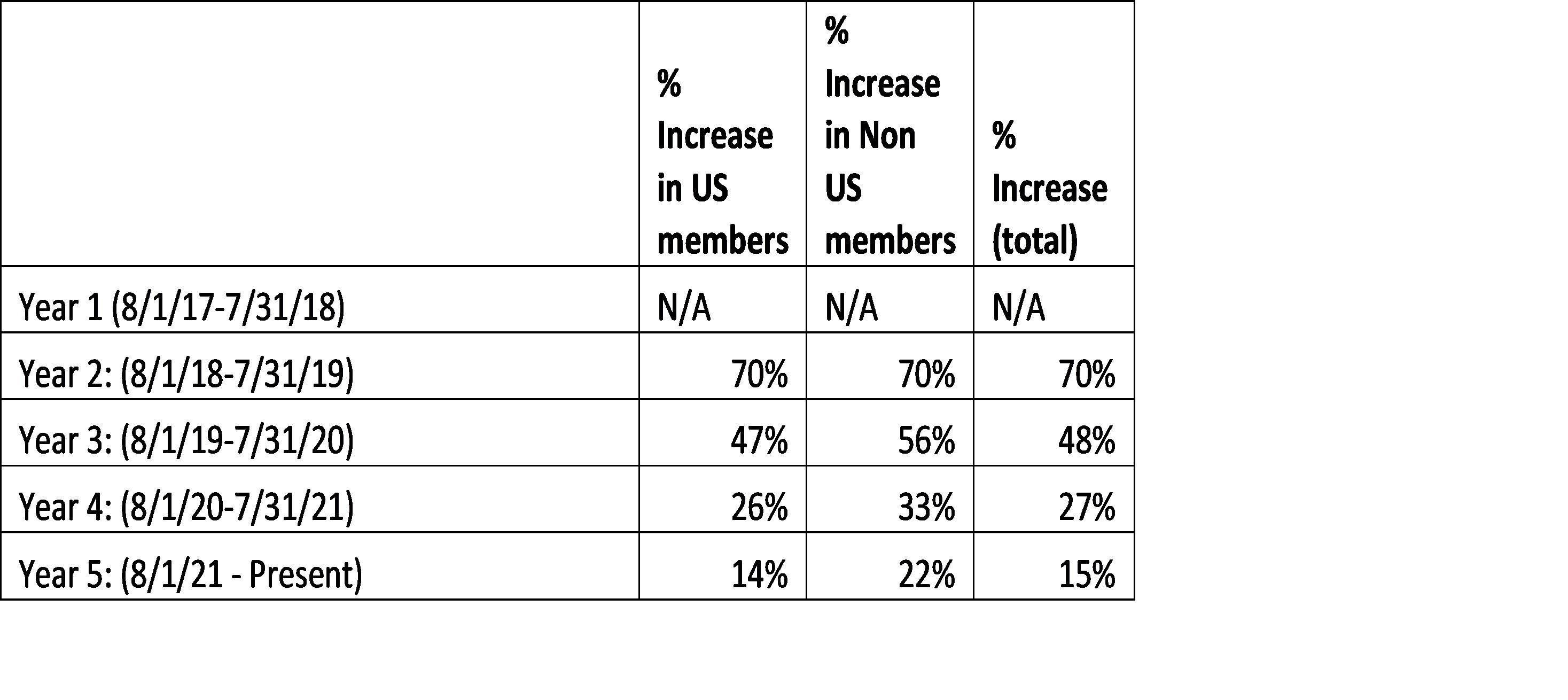Back
Poster Session A
Patient engagement/self-management
Session: (0181–0186) Patient Education/Community Programs Poster
0183: LupusConnect™: A 24/7 Online Lupus Support Community
Saturday, November 12, 2022
1:00 PM – 3:00 PM Eastern Time
Location: Virtual Poster Hall
- AH
Ashley Holden, BS
Lupus Foundation of America
Bossier City, LA, United States
Abstract Poster Presenter(s)
Leticia Ocana, Ashley Holden and Daria McClamb, Lupus Foundation of America, Washington, DC
Background/Purpose: A Lupus Foundation of America (LFA) National Needs Assessment Survey in 2015 with 3402 lupus patients and caregivers found that the number one need was social support and assistance coping with lupus. In response to the survey, the LFA, in partnership with Inspire, a healthcare social network, launched LupusConnect™ in 2017. LupusConnect™ is an online lupus support community where people can post and gain insight from others 24 hours a day, 7 days a week. To assess the impact of the online support groups, to advocate and educate others on the importance of such groups, a review of the data within LupusConnect™ was conducted to analyze the composition of its members and topic of discussions across demographic variables and geographic location.
Methods: In partnership with LFA, Inspire developed a dashbard for LupusConnect™ which tracks the metrics of its members. The dashboard collects data such as demographic information (race, gender, etc.), geographic location and community engagement. Data as of June 2022 was reviewed and included 18,043 members whom self-reported to have systemic lupus erythematosus (SLE).
Results: LupusConnect™ offers an innovative way for people with lupus to connect with others also impacted by the disease from anywhere in the world and at any time. Findings show that of the 18, 043 members, 58.4% members are female, 5.2% male and 36.4% did not specify a gender. Most of the membership is based in the United States (US) (85.5%) compared to non-US membership (14.5%).
During the COVID-19 pandemic, there was a 48% increase in membership in Year 3 and a 27% increase in membership in year 4 (Table 1). Data demonstrates that US members were consistent with their number of posts in the community despite the pandemic. However, the number of non-US posts increased during Years 3 and 4 which overlap with the COVID-19 pandemic (Table 2).
The top terms discussed in the posts remained similar between US members and non-US members (Table 3).
Conclusion: There is an ongoing need for online support group/forum where all people affected by lupus can interact with one another from anywhere in the world even when traditional in-person support groups are not available. No matter the geographic location of members, the top topics of the discussion posts of the support community are similar, indicating the utility of the online platform in relation to any rheumatic disease which serves to connect with others globally on their most pressing disease-related topics.
 US and Non-US Membership
US and Non-US Membership
 Number of Posts by US and Non-US Members
Number of Posts by US and Non-US Members
 Popular Terms Discussed in the Posts
Popular Terms Discussed in the Posts
Disclosures: L. Ocana, None; A. Holden, None; D. McClamb, None.
Background/Purpose: A Lupus Foundation of America (LFA) National Needs Assessment Survey in 2015 with 3402 lupus patients and caregivers found that the number one need was social support and assistance coping with lupus. In response to the survey, the LFA, in partnership with Inspire, a healthcare social network, launched LupusConnect™ in 2017. LupusConnect™ is an online lupus support community where people can post and gain insight from others 24 hours a day, 7 days a week. To assess the impact of the online support groups, to advocate and educate others on the importance of such groups, a review of the data within LupusConnect™ was conducted to analyze the composition of its members and topic of discussions across demographic variables and geographic location.
Methods: In partnership with LFA, Inspire developed a dashbard for LupusConnect™ which tracks the metrics of its members. The dashboard collects data such as demographic information (race, gender, etc.), geographic location and community engagement. Data as of June 2022 was reviewed and included 18,043 members whom self-reported to have systemic lupus erythematosus (SLE).
Results: LupusConnect™ offers an innovative way for people with lupus to connect with others also impacted by the disease from anywhere in the world and at any time. Findings show that of the 18, 043 members, 58.4% members are female, 5.2% male and 36.4% did not specify a gender. Most of the membership is based in the United States (US) (85.5%) compared to non-US membership (14.5%).
During the COVID-19 pandemic, there was a 48% increase in membership in Year 3 and a 27% increase in membership in year 4 (Table 1). Data demonstrates that US members were consistent with their number of posts in the community despite the pandemic. However, the number of non-US posts increased during Years 3 and 4 which overlap with the COVID-19 pandemic (Table 2).
The top terms discussed in the posts remained similar between US members and non-US members (Table 3).
Conclusion: There is an ongoing need for online support group/forum where all people affected by lupus can interact with one another from anywhere in the world even when traditional in-person support groups are not available. No matter the geographic location of members, the top topics of the discussion posts of the support community are similar, indicating the utility of the online platform in relation to any rheumatic disease which serves to connect with others globally on their most pressing disease-related topics.
 US and Non-US Membership
US and Non-US Membership  Number of Posts by US and Non-US Members
Number of Posts by US and Non-US Members  Popular Terms Discussed in the Posts
Popular Terms Discussed in the Posts Disclosures: L. Ocana, None; A. Holden, None; D. McClamb, None.

